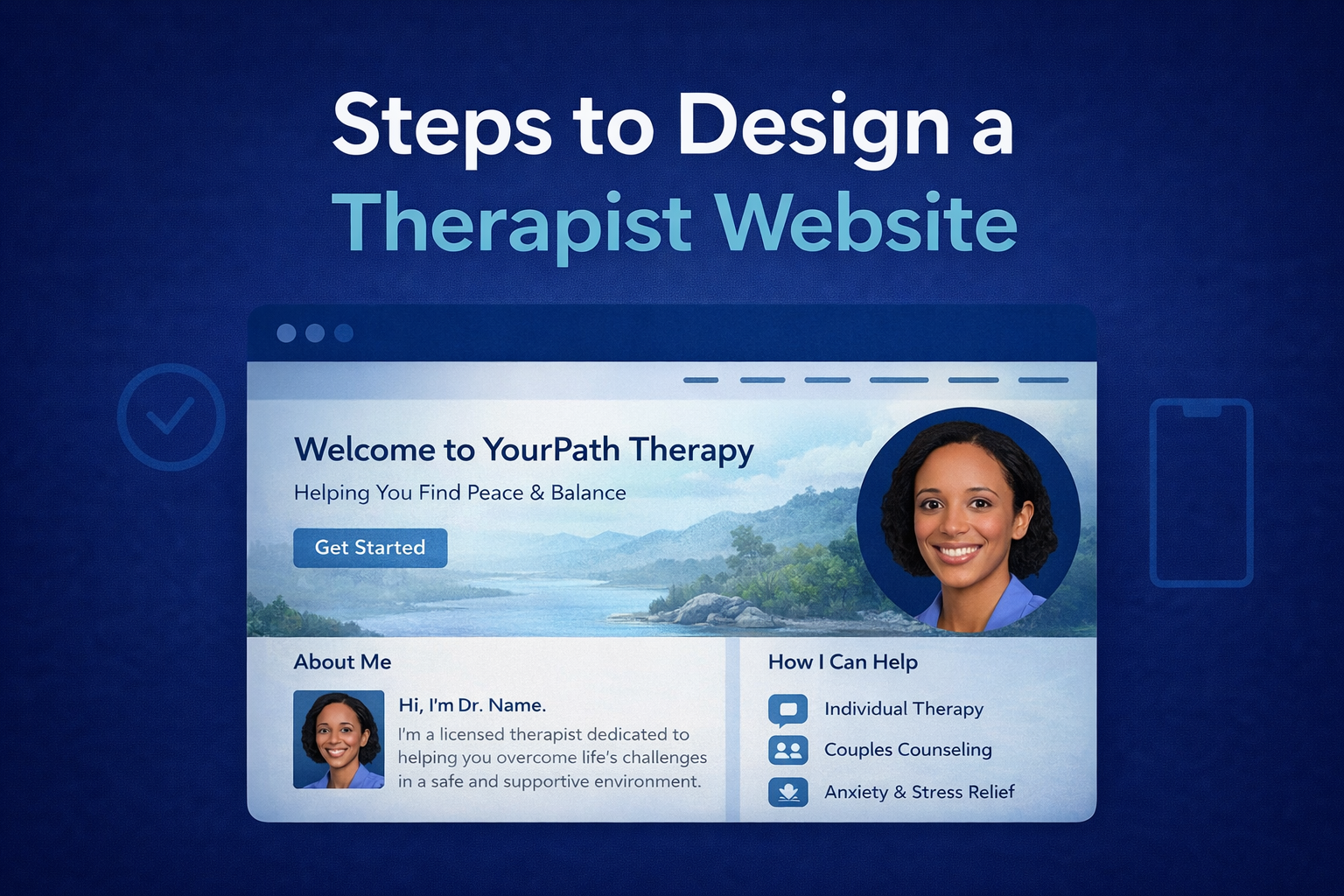Introduction to Online Strategies for Mental Health
Mental health professionals must leverage digital tools to reach clients effectively. Online strategies for mental health encompass SEO, content marketing, social media, and more, all tailored to build trust and visibility. These strategies help therapists connect with those seeking support while adhering to ethical standards.
The Importance of a Strong Digital Presence
A robust online presence ensures clients find you when searching for therapy. Whether it’s through Google or social media, your digital footprint shapes first impressions. Effective strategies increase inquiries and establish authority.
Google’s 2025 updates prioritize user-centric content and expertise. By focusing on online strategies for mental health, you can meet clients where they are—online—and make a meaningful impact.
Crafting a Client-Centric Website
Your website is the heart of your online strategy. Ensure it’s:
- Mobile-Friendly: Most clients browse on phones.
- HIPAA-Compliant: Protect client data with secure forms.
- User-Friendly: Include clear navigation and booking options.
Highlight your services and credentials with empathetic language. For guidance, see our HIPAA-compliant website guide.
SEO Strategies to Boost Visibility
SEO drives traffic to your site. Target keywords like “online strategies for mental health” or “therapist in [city].” Use tools like Google Keyword Planner to find high-intent, low-competition phrases.
Optimize title tags, meta descriptions, and headers. Add schema markup for local business to appear in rich snippets. Explore more in our advanced SEO strategies for therapists.
Mastering Local SEO for Community Impact
Local SEO connects you with nearby clients. Optimize your Google Business Profile with:
- Accurate contact information.
- Professional photos.
- Client reviews to build trust.
Incorporate local keywords like “counseling in [neighborhood].” Respond to reviews promptly. Learn more in our local SEO guide for therapists.
Content Marketing for Engagement
Content builds trust and authority. Create blogs on topics like “managing stress” or “benefits of online therapy.” Use varied formats:
- How-to articles.
- Short videos.
- Infographics for shareability.
Post consistently and promote via email or social media. Check our content marketing ideas for therapists.
Social Media as a Connection Tool
Social media platforms like LinkedIn or Instagram let you share insights and engage clients. Post mental health tips or anonymized success stories. Respond to comments to foster community.
Maintain professionalism and avoid sharing sensitive data. For tips, read our social media strategies for therapists.
Key Online Strategies for Mental Health Professionals
| Strategy | Objective | Tools/Resources | Outcome |
|---|---|---|---|
| Website Optimization | Enhance user experience | WordPress, Yoast, PageSpeed Insights | More inquiries, better UX |
| SEO | Increase search visibility | Google Keyword Planner, Ahrefs | Higher rankings, more traffic |
| Local SEO | Attract local clients | Google Business Profile, Moz Local | Stronger community presence |
| Content Marketing | Build trust and authority | Canva, blog platforms | Engaged audience, better SEO |
| Social Media | Connect with clients | Instagram, LinkedIn, scheduling tools | Increased brand awareness |
Leveraging Analytics for Insights
Analytics guide your strategy. Use Google Analytics to track:
- Traffic Sources: Identify where clients find you.
- Bounce Rates: Improve pages with high exits.
- Conversions: Monitor bookings or inquiries.
Search Console tracks keyword performance. Review data monthly to refine efforts and boost impact.
Voice Search Optimization for 2025
Voice searches like “therapist for anxiety near me” are rising. Optimize for conversational queries and FAQs to capture featured snippets. Ensure mobile compatibility for voice users.
AI tools can spot trends, but human oversight ensures ethical content. Learn more in our voice search SEO guide.
Ethical Online Strategies
Ethics are vital in mental health. Ensure HIPAA compliance for all digital tools, especially teletherapy and forms. Avoid misleading claims or aggressive marketing.
Focus on authentic, client-focused content. This aligns with Google’s guidelines and builds lasting trust with clients.
Success Stories in Online Strategies
One therapist used local SEO to increase inquiries by 45% in five months. Another shared educational videos on social media, growing their client base by 30%.
These examples show how online strategies drive impact. Tailor them to your practice for similar success.
Overcoming Digital Challenges
Challenges like low traffic or complex tools can slow progress. Start with free tools like Google Analytics. Update content regularly to stay relevant.
For technical issues, like HIPAA compliance or site speed, consider expert support. Consistency is key to lasting results.
Future-Proofing Your Online Strategy
Stay ahead of 2025 trends like AI-driven search or interactive content. Create evergreen content, like mental health guides, that adapts to client needs.
Engage through webinars or forums to build community. Monitor industry updates to keep your strategy effective.
Conclusion
Effective online strategies for mental health transform your practice’s reach and impact. By optimizing your website, leveraging SEO, and engaging through content and social media, you can connect with more clients.
Start today to make a difference in mental health. For expert support, contact Mental Health IT Solutions.







